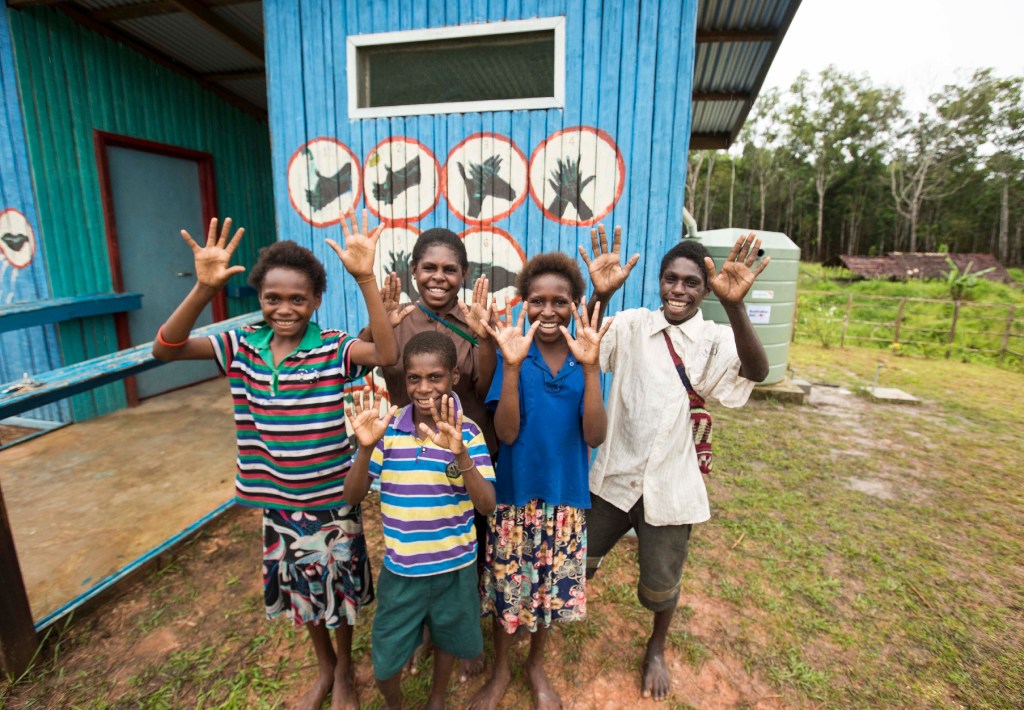Fragile Pacific countries need grant-based aid, not more debt
Thursday, November 8, 2018

World Vision Australia welcomes the Australian Government’s commitment to put its Pacific island neighbours at the centre of Australia’s foreign policy and aid.
World Vision CEO, Claire Rogers, welcomed the Prime Minister Scott Morrison’s announcement today to increase Australia’s engagement with Pacific countries and to explore innovative forms of development finance, but warned against a lending race in the region.
“We know that there is already a $2.5 trillion investment gap to achieve the the Sustainable Development Goals in developing countries, so new and innovative forms of development finance are clearly needed to lift communities out of poverty.”
In response to the Prime Minister’s announcement of a $2 billion Australian Infrastructure Financing Facility, Ms Rogers said the lending facility help address poor infrastructure in many emerging middle-income countries but warned against providing loans to countries already in debt distress.
“The economies of most of Australia’s key development partners in the region are fragile, so the Government should support their development through grant-based aid rather than burdening them with more debt,” Ms Rogers said.
“Infrastructure loans should be designed and allocated according to the recipient country’s ability to absorb new loans and the potential benefit of the proposed infrastructure project for people living in poverty.”
Ms Rogers said infrastructure projects funded by any government-backed lending facility should be pro-poor, climate-resilient and should be bundled with other community development projects to maximise their impact.
“The Pacific region is one of the most disaster-prone regions in the world, so any new infrastructure should factor in climate change and help local communities adapt to its increasing impacts.
“Hard infrastructure like roads and bridges should go hand-in-hand with soft infrastructure like capacity and skills building to broaden the benefits of infrastructure and to lift local communities out of poverty, which is the ultimate aim of Australian aid.”
Ms Rogers noted the announcement included no details on how the infrastructure financing facility would be funded, but argued strongly that it should not come at the expense of grant-based funding through the aid program.
“The announcements today must be in addition to Australia’s existing foreign aid budget, which is at its lowest levels in Australia’s history.”
The Prime Minister also announced plans to set up an Australian Defence Force mobile team to train Pacific forces in humanitarian and disaster response, peacekeeping, infantry skills, engineering and logistics.
“It is great to see the Government’s commitment to building regional capacity to respond to natural disasters and humanitarian emergencies, but I have concerns around the appropriateness of using defence forces in humanitarian contexts,” Ms Rogers said.
“Humanitarian action must be neutral, impartial, and independent, and it should be carried out by humanitarian personnel – not militaries – as much as possible.”
“Australia could better support responses to humanitarian emergencies by increasing the number of deployable, trained civilians in the region, such as through Australia Assists, rather than using defence forces to respond in these sensitive situations.”
For more information or for interview requests, contact: Mary-Louise O’Callaghan 0427 413 816, mary-louise.ocallaghan@worldvision.com.au
Picture: World Vision programs help strengthen areas like the Murr Lagoon community in Western Province, Papua New Guinea.
Media Releases,
Asia and the Pacific,
Claire Rogers,
Economic Development,
World Vision
Back to all Results